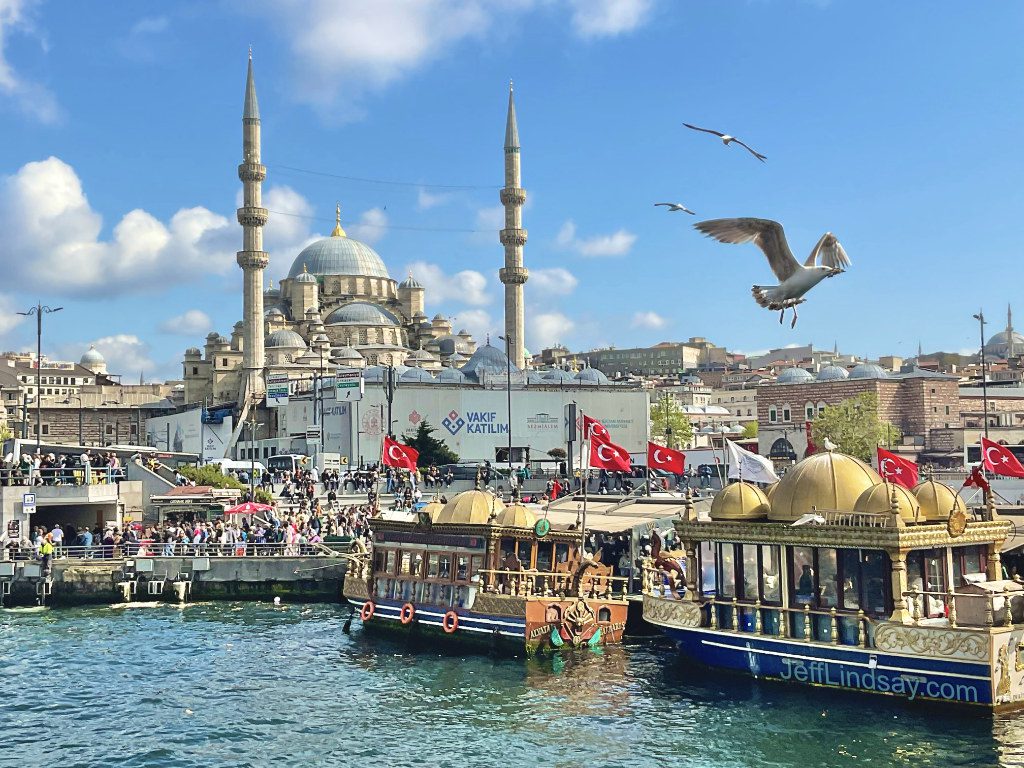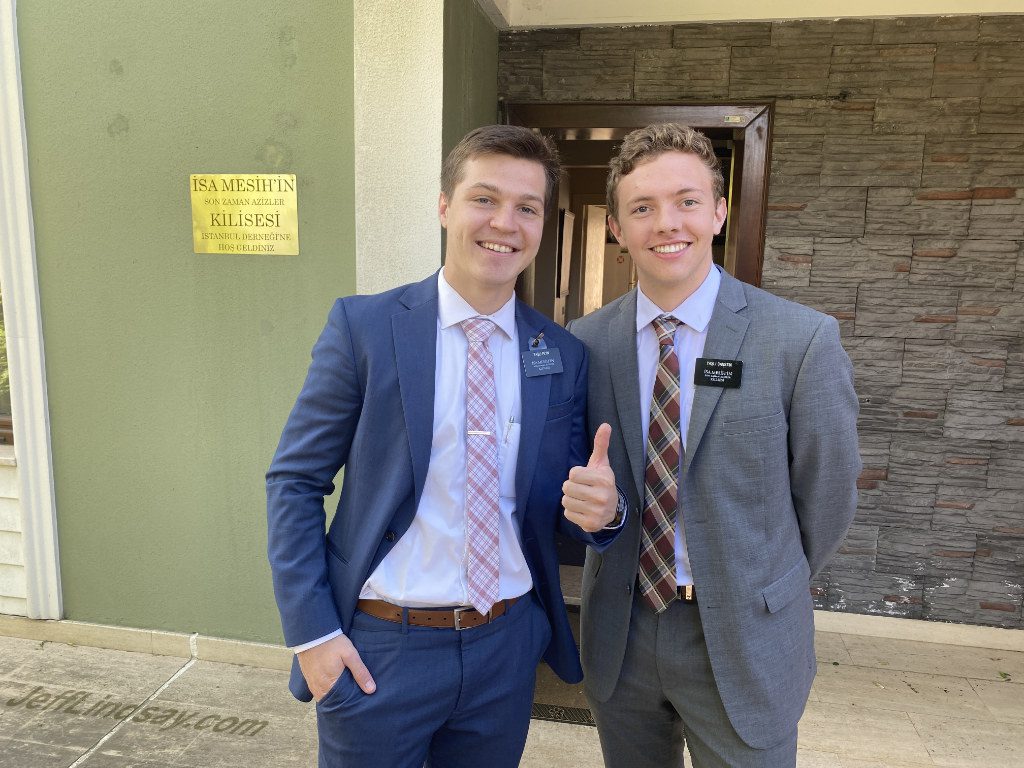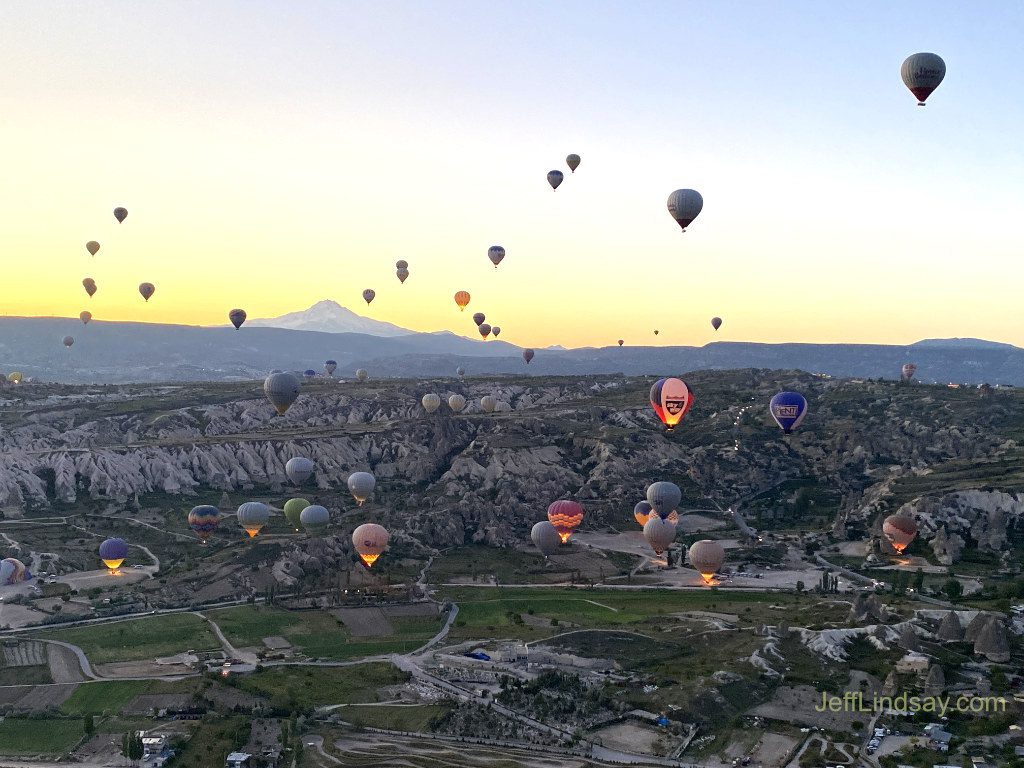 |
| The New Mosque (Yeni Cami) in the Eminönü quarter of Istanbul, on the Golden Horn at the southern end of the Galata Bridge. |
Thoughts on Freedom in Two Grand Cities: Shanghai and Istanbul
For over a decade, I’ve been convinced that Shanghai was the most exciting and perhaps most glorious city I’ve ever seen. Now the title of “the world’s most glorious city” in my mind goes to Istanbul, and I’ll explain why in a moment. But Shanghai was the top contender for that title starting almost as soon as I began living there in 2011. We were there at a golden time when Shanghai was remarkably free, prosperous, bustling, and beautiful. Today it is a place of despair, with even the most basic rights now in question as armies of bureaucrats decide who is allowed to leave their apartment, who can walk their dog, who gets what goods, and who must leave their home to reside in makeshift quarantine facilities. Some people have been largely stuck in their tiny apartments for 60 days in a row. The freedoms that so many of us took for granted are now just memories for many. Freedom is tenuous when there are no constraints on what government can do.
Those seeking power may rejoice when there is a crisis, for it is a chance to expand their control. They know the basic axiom: “You never want a serious crisis to go to waste,” as Rahm Emmanuel, Obama’s Chief of Staff, explained in November 2008 in the midst of a massive economic crisis (see him say this on a YouTube video of the Wall Street Journal broadcast). He explained that a crisis “allows you [as in us] to do things you thought you never could do before.” Big things, things focused on expanding the power of government to control and presumably solve all manner of problems (including the problem of political opposition), and of course, the ability to spend much more money. It’s a lesson that our politicians in both of the major parties know well. Emmanuel, of course, was using a line from Winston Churchill as Churchill was working to establish the United Nations. The crisis of World War II was the justification for the United Nations, just as the crisis of World War I was used to justify the League of Nations, and as every crisis, especially the man-made ones, are used to justify various expansions of government power.
The overreach of government has completely transformed Shanghai. I hope it will recover, but I worry for China and its people. Some won’t recover. Many businesses have been crushed, many have been greatly set back in their education and their plans for the future, and far too many are likely to suffer from the serious physical and mental harm that prolonged lockdowns bring. The massive surge in suicides in the US that lockdowns brought, especially among the young, is surely taking place in China which already had trouble enough with suicide, though details also are not likely to be shared due to the terrible tool of censorship. The saddest stories aren’t being told.
The zero COVID policy of China is failing. A highly contagious disease like the Omicron variant of COVID cannot be dictated out of existence. The vaccines there (and here) are doing little to slow its spread. It’s now well known that lockdowns are not very effective against COVID and may have caused harms far greater than the minor benefits. I fear that the effort to save face and prove that “zero COVID” can be achieved is backfiring tragically and delaying China’s ability to return to normal. I’m very sad for China.
Turkey, on the other hand, seems fully back to normal and Istanbul is an amazing, glorious place with the excitement that I loved in Shanghai but also with the rich centuries of history that Shanghai lacks. Turkey seems to be done with COVID and ready to rebound strongly. Masks are still worn on flights, but on the streets, in the restaurants, in the mosques, in the crowded tourist attractions, masks are not required and are generally uncommon. People associate and travel about freely. No neighborhood commissar dictates who can leave their apartment. I don’t need to have a dozen bureaucrats’ approval to travel to another part of town or another city. I don’t have to beg online for a rare chance to buy some fresh fruit. I don’t have to line up at the command of a local nanny to have a daily COVID test and possibly be dragged off to a quarantine camp for two or three weeks if there’s a positive test, perhaps a false positive. I can walk anywhere freely, purchase fresh pomegranate or orange juice on the street, get on a boat and travel along the Bosporus, and enter beautiful mosques and churches without having to show my passport (or vaccine passport) and have my name registered with government police that track my every move. I can choose where to eat, where to visit, what to photograph (this is a big challenge, though, for Istanbul presents endless scenes of beauty and intrigue that make it hard to stop taking pictures), and simply go where I wish at any time. These are blessings that I no longer take for granted.
We just spent 10 glorious days in Turkey after our visit to Bulgaria. We began with several days in Istanbul absorbing the history of the city with the aid of Yasin Karabacak, a remarkable tour guide that was recommended to my wife by Robin Pierson, the British historian who does the fascinating History of Byzantium podcast that my wife has been following for a long time, often with me listening in. Yasin runs the “Hidden Face of Istanbul” social media projects on Facebook, Twitter, and Instagram. With his help, we saw and learned vastly more than we could have done on our own. He knew the right times to go places, developed smart routes, and in addition to seeing some of the most famous sites, also took us to hidden corners with rich history, great food or views, and fascinating experiences. He could our many questions with detailed information and interesting stories. Many miles of walking and learning from that wonderful Muslim man who gave us a new perspective on the Turkish people and their history, while also beautifully representing his faith.
We also had some adventures on our own, including a visit we both made to an outstanding intellectual property firm in downtown Istanbul to discuss some patent issues for two of my clients. More importantly, we also were able to attend The Church of Jesus Christ of Latter-day Saints in Istanbul, where there is an English speaking branch and a Turkish branch meeting a facility that openly bears the name of the Church, though not very prominently. The branch meets in what looks like a residence, but has a lovely chapel that can seat perhaps 80 people. The gathering we attended was filled with warmth and excitement, and we also got to meet some of the local Turkish branch right after the two-hour services for the English branch ended.
 |
| Elders Johnston and Paine (Canstin and Peyn) of the Istanbul Turkey Mission, in front of the meeting place for two branches in Istanbul. |
While missionaries cannot yet proselyte door-to-door or on the streets in Turkey, there are missionaries assigned to the country, though for now they mostly stay in Bulgaria, very close to Istanbul, and work with people online. But they were in Istanbul the Sunday we went to Church for a mission gathering. It was a good thing we began our trip with a visit to Bulgaria, because that’s where we met missionaries for Turkey and learned of this Bulgaria-Turkish connection. That connection led us to check back with a friend in Bulgaria to confirm the meeting time for the English-speaking branch in Istanbul. On Sunday morning our friend connected with the Turkish missionaries and was able to tell us that the meeting time in Istanbul for English speakers was at 10:00 AM, not the 1:00 PM time given on the Church’s website. We had just enough time to dash outside, catch a taxi, and make it to the meeting place on time. In our travels, we’ve been disappointed several times by relying on online information for meeting times since events like Stake conference or other local issues can change the actual meeting time, so it’s always wise to check. We meet some really interesting people in that meeting and really enjoyed the spirit of the services there. It was their first time meeting again in a number of weeks, so we were lucky to be there.
The missionaries we chatted with and the people we met at church spoke highly and respectfully of Turkey, and apparently have been treated very well. While Turkey has a proud history of religious tolerance — the Turks showed remarkable religious toleration, allowing Jews, Eastern Orthodox believers, and others to return to Constantinople once they conquered the city in 1453, ending the horrible plundering, destruction of great treasures, and religious intolerance that the Crusaders had brought to the city during their decades of rule, and the Ottoman Empire in general maintained a great deal of religious toleration — Turkey has had terrible moments of religious persecution, and there are still problems today, as Lela Gilbert of the Hudson Institute reports. Religious freedom is often related to freedom of the press, and sadly, Turkey is currently rated as one of the most dangerous places to be a journalist, according to Amnesty International, with many being jailed for writing things that the government doesn’t like.
As a visitor to Turkey, we didn’t notice such problems. It seemed free, open, and inviting. But we did notice the effects of out-of-control government spending that have resulted in heavy inflation.
One of Turkey’s Greatest Challenges: Inflation (Plus Some Tips for Coping)
While in Turkey, we saw the value of the Turkish lira change dramatically in a few days,
going from 14.2 per dollar to 15.3. That’s a gargantuan change, but one
that the people of Turkey are used to. What I found interesting is that
everyone we talked to in Turkey on the topic of inflation had no
question about what caused it: government malfeasance. They knew it
wasn’t Putin’s fault or something caused by the greed of local vendors
jacking up prices in a free market. They knew irresponsible politicians
were the cause with reckless spending and irresponsible monetary
policies. From cabbies to intellectuals, people knew who to blame, but
they also felt helpless against the power of their government. This is a
tragedy that will only get worse.
The people of Turkey are bracing for the ravages of inflation. They are deeply worried, as they should be. The government reports that inflation is around 60% annually right now, but everyone seems to understand that it’s much worse than that, maybe around 100% or higher. They know they can’t trust the numbers government gives them. Many know that they need to prepare, but it’s difficult. They prefer to hold their savings in dollars or gold. They prefer to be paid in dollars or euros. They try to spend the liras they aren’t saving quickly before prices go up again. But it’s a dangerous crisis they are facing, one that won’t be solved by the superficial remedies that are often offered by the kleptocrats who created the problem.
Here in the US, the insane spending did not just begin with the current administration. It has been going on for decades. Trump’s administration spent more freely than Obama, though many Americans didn’t seem to notice or care. I was deeply worried about the long-term economic consequences of cavalier spending and money creation years ago, though now it’s moving much more rapidly than ever. The government, though, has done its best to help us cope by telling us the problem is just transitory and not to worry. When that disinformation became obviously ridiculous, they told us that inflation is healthy,, and not to worry, and when that became clearly absurd, they began blaming everyone but them. For decades, the inflation that has been eroding the dollar is apparently all due to recent actions of a very bad man in Russia. And greedy corporations that just suddenly became greedy in the past year or so. Fortunately, the government has the answer in a brilliant three-step program: spend more, spend even more, and spend much, much more, and generally make government bigger and more powerful than ever. It worked for Zimbabwe, right? And its doing wonders for Venezuela. Just trust the Fed and follow the economic science.
The US dollar has been losing value, sometimes slowly, sometimes quickly, ever since the Federal Reserve Bank was created with its fractional reserve system and support for the easy creation of money to facilitate big spending by government. An ounce of gold cost $20 when the Fed was created with the alleged benefit of protecting the value of the dollar. Today, in spite of the amount of gold in the world having been dramatically increased with the benefits of advanced mining techniques, the same amount of gold cost $1850, suggesting that the value of the dollar has been eroded by perhaps 98%. Using other measures, maybe the erosion looks closer to 93% or 95%. But the erosion is real. With advances in technology and knowledge leading to increased efficiency and productivity, we should expect the value of the dollar to have increased steadily, but it’s gone the other way.
Inflation is theft, theft by the ruling elite or those running the physical or digital printing presses creating new money, stealing the value of everyone else’s money with a hidden tax. (See Henry Hazlitt’s excellent statement on inflation given in 1973.) The temptation to keep spending more and creating more money is irresistible for those who seize that power and will eventually lead to devaluation of fiat currency into nothingness. It’s happened many times in many nations. It was happening in the US during the Continental Congress days, teaching painful lessons about inflation and that led our Founding Fathers to favor gold and silver as the medium of exchange. Those lessons were not forgotten, and after the inflationary heavy spending of the Civil War, Congress took the bold, brave, and honest step of keeping their promise and returning to backing the currency they had issued during the war with gold. See “How the United States Conquered Inflation Following the Civil War” at FEE.org. A rare story of politicians acting honestly and keeping their promises.
While the US has since departed from the use of precious metals to back the US dollar, allowing an unlimited supply to be conjured up for the benefit of the ruling class at the expense of all of us, those concerned about the rise of inflation may wish to consider adding some precious metals to their savings. Ways to do this include owning physical coins or bullion if you can manage the risks, or investing in funds that are backed by real precious metals (safer than funds just investing in paper certificates allegedly tied to gold). A stock that I prefer trades under the ticker CEF, which used to be the Canadian Exchange Fund but is now Sprott’s Physical Gold and Silver Trust. I have part of my self-directed 401k in this fund. Do your own diligence — I’m not your financial advisor. In my opinion, a safe way to own physical bullion, if you want it, may be to have it in a secure vault outside the borders of the US, since in the US accounts may be easily seized or frozen by officials for a variety of reasons. As our government gets further out of control, the risks of this happening may increase in some sectors. We saw versions of this happen in Canada after President Biden advised Justin Trudeau to use all means available to squelch the truckers’ “Freedom Convoy.” Many truckers and those who supported them found bank accounts suddenly frozen, being treated like terrorists and criminals rather than citizens protesting for freedom. Bank accounts here may not be a safe as you think.
One service that can allow US citizens too hold funds and precious metals overseas is the Singapore-based SilverBullion.com company, which has a great track record and is highly rated by some experts I trust, but do your own diligence. Gold and silver just had a sell-off as the market seems to believe that economic risks are low again, making this a good time to buy, in my opinion. But don’t buy expecting it to double quickly. It may drop 20% suddenly right after you buy, but over the long run I think some precious metals may be a wise hedge against inflation as a way to store some wealth.
More importantly, I think, this is a time to build a solid food storage and acquire supplies for emergency preparedness. Food prices are likely to continue rising as the dollar is further devalued, and as various man-made crises disturb the supply chain. Don’t expect government to make wise steps to alleviate food shortages. Look at these issues through their eyes: “never let a good crisis go to waste….” For corrupt politicians, the incentives in government tend to favor the exacerbation of each crisis rather then preventing or solving it, just as the economic and political incentives tend to favor war over peace. So when there is a shortage, be ready for steps that will make things worse: blaming the producers and taxing or fining them, blaming capitalism and replacing it with government controls over prices and production, blaming consumers who prepared as evil “hoarders,” and even nationalizing industries, ensuring that the most incompetent, clueless, and greedy are suddenly running complex businesses — running them into the ground and creating total destruction and massive shortages, leading to new rounds of blaming and expanding government control to solve the government-caused crisis. At least Venezuela didn’t start shutting down its pipelines and directly limiting oil production, but the effects of all-out socialism there in a nation with abundant natural wealth have been devastating. Vicious cycles of government greed and corruption are ravaging once prosperous Venezuela now. It is not the paradigm we should follow.
In building your food storage, keep it quiet, but also understand that should disaster strike, you may be the means of helping many around you. If you can, consider storing more than you think you will need for yourself, but manage it so that you don’t end up throwing away half of it in five years after sitting unused or poorly protected.
What worries me most about inflation is the chaos that it causes, especially for the poor who can quickly become desperately poor, but the middle class will also feel the pain. Dreams will be shattered. People will go hungry. This has been one of the main outcomes of the tragedy of Communism in the past century, and hunger continues to threaten millions, especially where war or lawlessness prevail. We live in a world of inherent abundance, where there is and should be enough for all (Doctrine and Covenants 104:17), but the greed of government — the one form of greed we never hear about in the media or in the speeches of popular politicians — can create shortages and chaos where abundance would reign if people were free and if what they earned was not constantly gnawed away by the greedy demon of inflation.
It is corruption, whether from government or criminals, when the two can be distinguished, that creates blood and horror where there should be peace and hunger where the should be feasts.
Yearning for and Preparing for Zion
In a Zion society, there will be no poor among the people (Moses 7:18) not because the power of eugenics and widespread abortion will have eliminated the undesirable children of the unwanted poor, nor because the poor will riot to “eat the rich” for temporary relief, nor because we have ramped up the printing presses and handed out buckets full of increasingly worthless cash to the masses, but because we will welcome, love and lift each other, formerly rich or formerly poor, one by one, and work together to create marvelous opportunities and abundance for all of us with Christ as our guide in a truly free and liberated society.
Building a food storage now and preparing for future crises in other ways can be seen as a future investment in Zion. May we be ready to move closer to a Zion society as we confront the crises we will surely face and lift each other now as much as we can. And may we do all we can to spread the message of hope that the Gospel brings and the blessings that the organization of the Church can bring into the lives and societies of our brothers and sisters all over this beautiful but troubled planet.
 |
| Not exactly Zion, but Cappadocia in Turkey offers some great ways to be lifted. |
Related Reading:
- “Napkin Math to Explain Inflation,” Foundation for Economic Education, May 14, 2022.
- Frank Shostak, “What Inflation Really Means,” Mises Institute, Nov. 3, 2021.










Why is using precious metals as a reserve of value considered a way to fight inflation?
It’s the only currency that has maintained its value over centuries. All others seem to become trash over time.